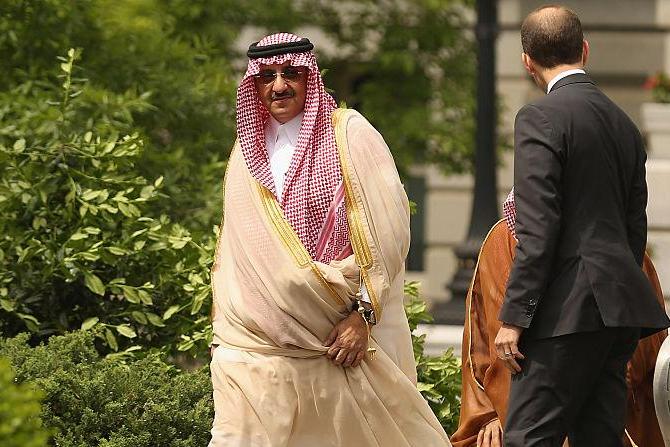Saudi Crown Prince 'forced from power by younger cousin over painkiller addiction'
'I want you to step down, you didn't listen to the advice to get treatment which dangerously affects your decisions'

Your support helps us to tell the story
From reproductive rights to climate change to Big Tech, The Independent is on the ground when the story is developing. Whether it's investigating the financials of Elon Musk's pro-Trump PAC or producing our latest documentary, 'The A Word', which shines a light on the American women fighting for reproductive rights, we know how important it is to parse out the facts from the messaging.
At such a critical moment in US history, we need reporters on the ground. Your donation allows us to keep sending journalists to speak to both sides of the story.
The Independent is trusted by Americans across the entire political spectrum. And unlike many other quality news outlets, we choose not to lock Americans out of our reporting and analysis with paywalls. We believe quality journalism should be available to everyone, paid for by those who can afford it.
Your support makes all the difference.The Crown Prince of Saudi Arabia was reportedly forced from power by his younger cousin over claims he was addicted to painkillers.
Mohammed bin Nayef was summoned to meet King Salman bin Abdulaziz at the royal palace in Mecca last month.
His phone was reportedly seized and he was ordered to step aside in favour of Mohammed bin Salman, the King’s son, over claims an addiction to painkillers was clouding his judgement.
"The king came to meet Mohammed bin Nayef and they were alone in the room. He told him: 'I want you to step down, you didn't listen to the advice to get treatment for your addiction which dangerously affects your decisions'," a source close to the royal told the Reuters news agency.
A letter read out over the phone to the House of Saud's Allegiance Council after his dismissal reportedly said: "Because of this dangerous situation we see that he should be relieved of his position and that Mohammed bin Salman be appointed in his place.”
But a senior Saudi official said the account was totally "unfounded and untrue in addition to being nonsense".
"The story depicted here is a complete fantasy worthy of Hollywood," the official said.
He said Mr bin Nayef had been removed in the national interest and had not experienced any "pressure or disrespect" but said precise reasons for his dismissal were "confidential".
Sources with knowledge of the situation said the king was determined to elevate his son to be heir to the throne and used Mr bin Nayef’s alleged drug problem as a pretext to push him aside.
"It was a big shock to him," said a Saudi political source. "It was a coup. He wasn't prepared."
Sources claimed the 57-year-old did not expect to be usurped by his cousin, who he considered as having made a number of policy blunders, such as his handling of the Yemen conflict and cutting financial benefits to civil servants.
A source close to Mr bin Nayef acknowledged that he had health issues, which were aggravated after an al Qaeda attacker tried to blow himself up in front of him in his palace in 2009.
Sources claimed he has shrapnel in his body that cannot be removed and he depends on drugs such as morphine to alleviate the pain.
According to two Saudi sources with links to the royal house, only three members of the council opposed his overthrow: Ahmed bin Abdulaziz, a former interior minister, Abdulaziz bin Abdallah, a representative of the family of late king Abdallah, and Prince Mohammad bin Saad, a former deputy governor of Riyadh.
Mr bin Nayef reportedly remains under house arrest to keep him out of circulation following his overthrow, with no visitors allowed except close family members.
He is not taking calls, a source close to the former crown prince said. In the past week he was only granted permission to visit his elderly mother with the new guards assigned to him.
Additional reporting by Reuters
Join our commenting forum
Join thought-provoking conversations, follow other Independent readers and see their replies
Comments